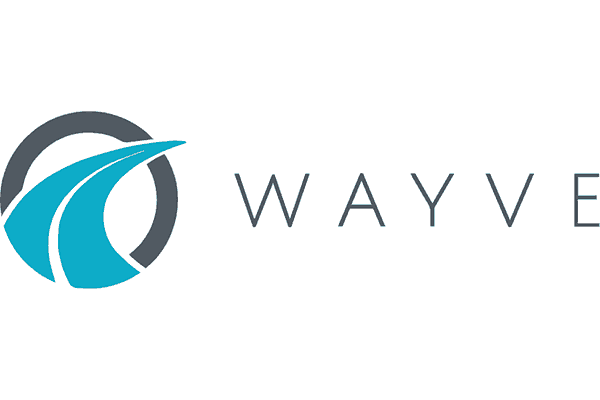The quest for proprietary software begins.
- Google is planning to “put more thought” into its Nexus line of devices which to me is yet another signal that Google’s is beginning to prepare the market for taking complete control of the Android software.
- At the Recode conference being held this week, Sundar Pirchai, CEO Google discussed plans to add more functionality to its Nexus line of devices to make them more appealing.
- The problems with the Google ecosystem based on Android are that the user experience is hobbled due to the endemic fragmentation of Android about which Google has been able to do very little.
- Nexus devices today ship with the standard version of Android but in the future Google will add more features on top of that to improve the user experience.
- Ensuring that new features perform well and don’t drain the battery invariably means that low level changes to the code will be required.
- Google’s contextual based search service Now on Tap is a great example of that.
- I suspect that the end result of this will be that in order to bring these new features to Nexus, Google will have to use a fully closed, proprietary version of Android.
- Once this is in the wild and assuming that it is much better than the open version, I can see handset makers being rapidly pushed into adopting it.
- I think that Samsung has nothing to lose by adopting a proprietary version of Android as despite its recent protestations, it is soley a hardware company.
- Samsung’s profitability is derived from the scale that it gets from outselling its nearest competitor by 2 to 1 and not from any software innovations that it makes on its devices.
- If it proves to be a superior experience, as I am sure it will be, then as soon as one vendor uses it, they will all have to adopt it and Google’s mission to fix its awful problems with Android will be complete.
- A proprietary version of Android will allow Google to fix the endemic fragmentation that plagues Android and to take back control of software updates.
- RFM estimates that it takes around 4 years for a new version of Android to fully penetrate Google’s ecosystem compared to a matter of months for iOS.
- I think that the real problem with this move will be getting it past the Android developer community but here Oracle is the ace up Google’s sleeve.
- In Marshmallow, Google has been forced to use Oracle standard libraries for the Android Run Time meaning that Google has effectively lost control of the software roadmap for the runtime.
- This is something that Google simply cannot afford and when it presents its proprietary version it can point the finger at Oracle as the reason for having to make this move.
- The signs of this outcome are growing reinforcing my position that this will begin to happen in earnest in 2017.
- Alphabet shares remain around fair value leading me to prefer Microsoft and Samsung for the immediate term and Apple for long-term income based investors.
- I also like Facebook for the long-term but need to see it get past potential difficulties in H2 2016 before I get involved.









Blog Comments
Randy Lea
June 8, 2016 at 7:19 pm
I do not understand your point. Are you claiming they are moving away from Java? How does ending the AOSP force updates through the system?
windsorr
June 28, 2016 at 4:06 am
Yes.
The development of the ART is now be controlled by Oracle. Google can not permit this and the solution here is to rewrite the ART and the libraries. Fro there its a simple step to put in GMS and blame Oracle.. That will effectively make GMS a propprietray version of Android,
Richard
July 12, 2016 at 7:59 pm
So you are saying that ART, the solution Google created to ditch Delvik and offers source on Git is controlled by Oracle? https://android.googlesource.com/platform/art/+refs
What’s the basis of your bullshit?
Analyst: Google plans to take Android proprietary | Leave Google Behind
June 10, 2016 at 11:30 am
[…] This is a long-standing theme for Windsor, who most recently raised it here. […]
Google Is Working On A Closed Source Version Of Android OS — Analyst
June 10, 2016 at 12:03 pm
[…] to the claims of a technology analyst Richard Windsor, Google is working on a highly confidential internal project to rewrite the ART runtime to scrape […]
TLians.com
June 10, 2016 at 10:12 pm
[…] proprietary version of the mobile operating system.According to the claims of a technology analyst Richard Windsor, Google is working on a highly confidential internal project to rewrite the ART runtime to scrape […]
heron
June 23, 2016 at 12:05 pm
Hi,
Thanks for your interesting article.
About this bulleted list “A proprietary version of Android will allow Google […] to take back control of software updates”
and thise one “RFM estimates that it takes around 4 years for a new version of Android to fully penetrate Google’s ecosystem compared to a matter of months for iOS.” I have one question I often ask myself : What’s the point ?
What is the point for a product releaser (of smartphone, OS, GPS, software) to have ALL his product under the same soft version ? Why is this so important ?
About myself, on my smartphone I can’t install any update (my smartphone is too old) but I keep using it and I’ll do until it’s completely unusable or broken. So I have an outdated product but I can still use it.
So I wonder why is this soooo important for the releasers (Google, Microsoft, Apple, etc) to ask us to have the lastest version of their software on our product. In other world, why a fragmented market about version of the same product is so much a nightmare for these companies ? I can’t graps it (else it is for dark purposes as tracking, eavesdropping, …)
If anyone has a clue about that, I should be grateful to understand this mystery ^^
thanks
windsorr
July 18, 2016 at 5:04 pm
Google is unable to distribute its software updates which is like making a great product and then not being able to get it to leave the factory. Also the endemic fragmentation hampers the user expereince.. both are fixed by Google taking control of Android,
Jones Day
July 14, 2016 at 11:38 am
“The problems with the Google ecosystem based on Android are that the user experience is hobbled due to the endemic fragmentation of Android about which Google has been able to do very little.”
Google answer to this is Google Mobile Services, it is proprietary so Google can and does update it, currently about every 6 weeks. Yes not everything is part of this package but with every platform release more functionality is moved into it. GMS runs across every android device after 4.0 (97% of devices).
“In Marshmallow, Google has been forced to use Oracle standard libraries for the Android Run Time meaning that Google has effectively lost control of the software roadmap for the runtime.”
Do you have a source for this? My understanding of the case was that it was about the copyright of the semantics and structure of the Java api. This has nothing to do with ART. ART’S input is bytecode and its output is machine code.
windsorr
July 18, 2016 at 5:05 pm
Check Android.developer.com. It is using the Java standard libraries which means Google no longer controls the APIs. This means any change has to be implimented by Sun. this is not a viable position from Google’s perspective.